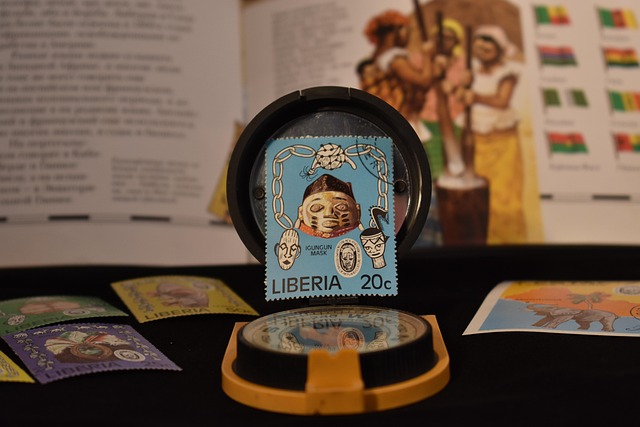
Stress and Its Impact
Stress is a natural response to the demands of daily life, but when it becomes chronic, it can significantly affect both mental and physical health. While stress is not synonymous with mental health disorders such as anxiety and depression, it can exacerbate these conditions. Understanding the nature of stress and its effects is crucial for effective management.
The Importance of Self-Care
Engaging in self-care activities is essential for reducing stress and promoting overall well-being. Self-care encompasses a variety of practices that nurture the body and mind, helping to mitigate the chronic stress that many individuals face. However, in the fast-paced world we live in, finding time for extensive self-care routines can be challenging. Fortunately, there are numerous quick and effective strategies that can be employed to alleviate stress in five minutes or less.
Quick Stress Relief Techniques
Here are 25 practical methods to help reduce stress swiftly:
- Deep Breathing: Take a moment to focus on your breath. Inhale deeply through your nose, hold for a few seconds, and exhale slowly through your mouth. This simple technique can help calm the nervous system.
- Hand Massage: When a professional massage is not an option, a self-administered hand massage can provide immediate relief. Apply lotion and knead the base of the muscle under your thumb to release tension.
- Mindful Eating: Enjoy a piece of dark chocolate or a healthy snack. Savoring the flavors can distract the mind and promote relaxation.
- Stretching: Engage in a quick stretch to relieve muscle tension. Focus on areas where you typically hold stress, such as the neck and shoulders.
- Visualization: Close your eyes and visualize a peaceful scene, such as a beach or a forest. This mental escape can provide a brief respite from stress.
- Gratitude Journaling: Take a moment to jot down three things you are grateful for. This practice can shift your focus from stressors to positive aspects of your life.
- Progressive Muscle Relaxation: Tense and then relax each muscle group in your body, starting from your toes and working up to your head. This technique helps release physical tension.
- Listening to Music: Play a favorite song or calming music. Music has the power to elevate mood and reduce stress.
- Nature Sounds: Listen to recordings of nature sounds, such as rain or ocean waves. These sounds can create a calming atmosphere.
- Quick Walk: If possible, step outside for a brief walk. The change of scenery and physical activity can help clear the mind.
- Mindfulness Meditation: Spend a few minutes in mindfulness meditation, focusing on the present moment without judgment.
- Tea Time: Brew a cup of herbal tea. The act of preparing and sipping tea can be a soothing ritual.
- Positive Affirmations: Repeat positive affirmations to yourself. This practice can help foster a positive mindset.
- Disconnect: Take a short break from screens and social media. Disconnecting can help reduce information overload.
- Essential Oils: Use essential oils, such as lavender or chamomile, for aromatherapy. Inhaling calming scents can promote relaxation.
- Pet Therapy: Spend a few minutes with a pet. Interacting with animals can provide comfort and reduce stress.
- Coloring: Engage in a brief coloring activity. This creative outlet can serve as a form of mindfulness.
- Breath Counting: Count your breaths as you inhale and exhale. This simple focus can help ground you in the moment.
- Positive Visualization: Imagine achieving a goal or overcoming a challenge. This can boost confidence and reduce anxiety.
- Stretch Your Spine: Stand up and stretch your spine by reaching your arms overhead. This can alleviate tension and improve posture.
- Compliment Yourself: Take a moment to acknowledge your strengths and accomplishments. Self-affirmation can enhance self-esteem.
- Quick Gratitude Call: Call or text a friend or family member to express gratitude. Connecting with loved ones can uplift your spirits.
- Mindful Observation: Observe your surroundings for a few minutes. Notice colors, shapes, and sounds to bring your focus to the present.
- Write a Letter: Write a letter to yourself or someone else expressing your feelings. This can be a therapeutic release.
- Practice Kindness: Perform a small act of kindness for someone else. Helping others can foster a sense of connection and purpose.
- Reflect on Achievements: Spend a moment reflecting on your recent achievements, no matter how small. This can boost motivation and positivity.
Conclusion
Incorporating these quick stress relief techniques into daily life can significantly enhance one’s ability to manage stress effectively. While it is essential to prioritize long-term mental and physical health, these brief practices can provide immediate relief in moments of tension. By nurturing oneself through self-care, individuals can foster resilience against the challenges of daily life.

















 The Impact of Gambling Transactions on Mortgage Applications
The Impact of Gambling Transactions on Mortgage Applications 
 Health
Health  Fitness
Fitness  Lifestyle
Lifestyle  Tech
Tech  Travel
Travel  Food
Food  Education
Education  Parenting
Parenting  Career & Work
Career & Work  Hobbies
Hobbies  Wellness
Wellness  Beauty
Beauty  Cars
Cars  Art
Art  Science
Science  Culture
Culture  Books
Books  Music
Music  Movies
Movies  Gaming
Gaming  Sports
Sports  Nature
Nature  Home & Garden
Home & Garden  Business & Finance
Business & Finance  Relationships
Relationships  Pets
Pets  Shopping
Shopping  Mindset & Inspiration
Mindset & Inspiration  Environment
Environment  Gadgets
Gadgets  Politics
Politics 